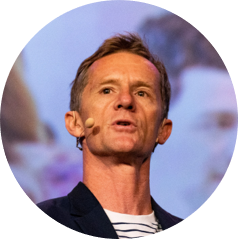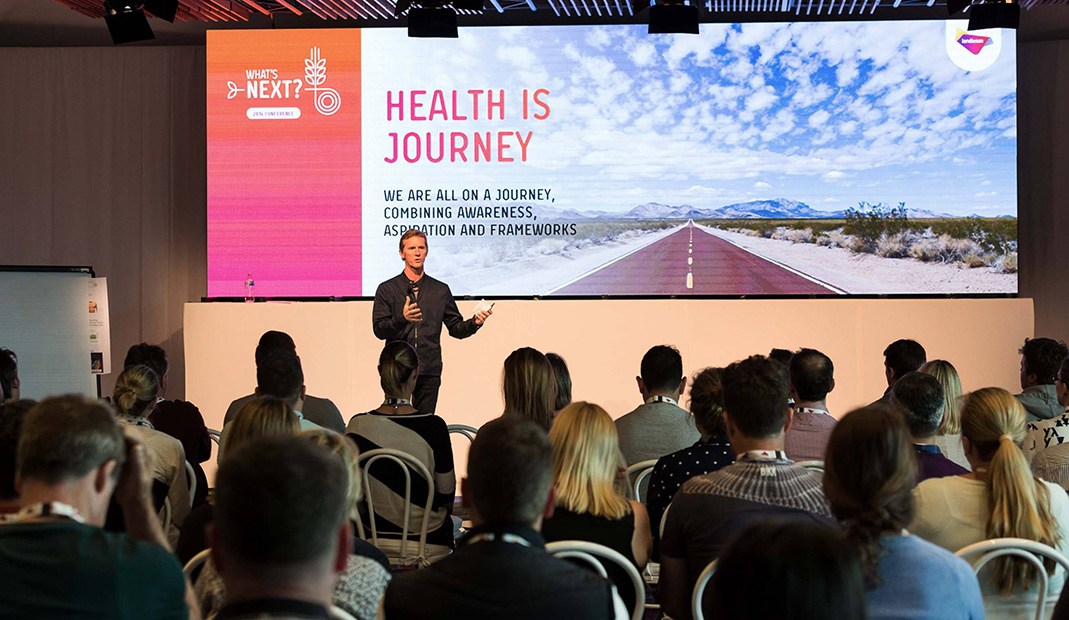OPINION: Duncan Young, keynote speaker at the upcoming Green Property Summit 2021 shares his reflections on his 25-year career with Lendlease, providing insights on how we can all benefit from and build more trust in the workplace.
As I celebrate twenty-five years in my career with Lendlease I’m not only feeling proud of crafting a career that has thus far led me to a job I love in teaching and sharing wellbeing practices across the globe, but also reflecting on the contributions that others have made to my journey.
The truth is we are all interconnected and interdependent especially in the workplace. So, while it might have been up to me to make some bold decisions, invest in some training and skills development, and work hard to learn and master the skills required, there have been many people around me who have made this possible. Sometimes it’s been through explicit support, encouragement or even challenge, and sometimes it’s been more implicit, and they may not have even realized that something that they said or did has inspired me to action.
After all, when gold medalists stand on the podium they rarely say it was all their own work. They usually thank all the people – their coach, family, friends, and fellow team members – who supported them along the way. And just as winning an Olympic medal requires a team approach, at work we also need people who can cheer us on and celebrate with us. We also need those who keep believing in us when the going gets tough. Research has found that reaching our potential in every dimension of our lives – our performance, intelligence, leadership and health – can be due to the influence of people around us.
For example, if it hadn’t been for a manager who encouraged me to take a broader perspective to my own learning and development, I may not be in the role I’m in today. At the time I was in sustainability and dreaming of a future role in wellbeing. He suggested that rather than consider the standard education courses for managers’ that my aspirations to be a non-management “subject matter expert” would be better met with a different set of skills and approaches. So, we agreed to invest in 1on1 coaching for me to help develop a wellness program and create a business that would benefit internal and external Lendlease customers.
So, if you’re currently working in a role that you feel is not where you really want to be and you’re unsure of the path ahead, chances are that developing relationships with someone whose advice you can trust may be a way forward for you. Studies suggest that when you trusted others at work who show interest and concern in your success and personal wellbeing, both the quality and quantity of your work can improve.
What are other benefits of trust?
One of the leading researchers on trust in workplaces, Paul Zak found that when you work for a company where trust is high you’re likely to experience: 74% less stress, 50% higher productivity, and 40% less burnout; be 76% more engaged; and have 106% more energy at work and 29% more satisfaction with your life overall compared with people who work in a “low trust” company.
And when leaders exemplify the organizational values, are transparent, listen to your views, include you in planning and recognize diversity at all levels of the organization, you’re much more likely to be strongly committed to advocate on behalf of your employer, and be committed to your job and customers. And yet many companies are falling short of their internal and external customers’ trust expectations.
What about trust at the broader level?
Research has found unfortunately that over the last four decades trust between people and public systems in general has been on the decline in the USA. This is concerning given that trust is essential for any well-functioning and effective system – from small groups to large countries – and a fundamental element of social capital and wellbeing. It is no coincidence that the countries where people trust each other the most, such as Finland and Norway are also ranked as the happiest places to live in the world. And that’s the sense I get from the interactions and connections I make when I have visited these countries.
Can we build more trust?
Our workplaces are a social system where we spend most of our waking hours with others. And chances are many of our colleagues will have similar interests (at least in regards to our jobs) to us, and it is easier to build trust with others, even strangers who seem familiar to us. So, it makes sense that we use our workplaces to nurture more trust.
Not only may this help our own individual careers and wellbeing – it’s been essential for mine – but it’s also as an opportunity to grow trust within these social spaces in the hope that it will cascade out more generally to elevate trust and wellbeing within our broader systems. So by starting small you can make a big difference over time.
What can you do to grow trust?
- Connect with others – while hopefully there’s at least a few friendly faces to help make it easier and safer to trust your workmates you can boost this through high-quality connections that bring life and energy to an interaction. These only need to take a micro-moment, such as a morning greeting in the hallway, a check-in about their weekend or a smile during a meeting. Or it could be giving someone your full attention in a conversation by turning away from your computer and putting away your mobile phone.
- Delegate tasks – if you’re a leader try delegating more tasks with the trust that they will contribute to your team’s workload. And in the cases when they don’t hit the mark, rather than conclude that it would be better to do it yourself next time, use it as an opportunity to develop your people. Make the generous assumption that they did the best they could with the resources they had and look at what they might need to improve in the future.
- Be a giver – look for ways where you can help out others that doesn’t jeopardize your own tasks, and in turn seek out advice and help from others when you need it. Becoming an effective giver means you’re more likely to be trusting and trusted by others. You can also look and find ways to help others develop, shine and be successful. And the spin-off is that when you help others become better you’re more likely to expand your own potential.
- Practice integrity – be seen as trustworthy by keeping to your word. This can be difficult if you’re a people pleaser or have trouble saying no to things. Sometimes it means not agreeing to take on things or meet deadlines that you know you can’t meet. It also means choosing to act on your values even when it’s a difficult or uncomfortable decision to make.
So take five minutes and think about trust as a way to build social capital and your wellbeing at the same time.
Duncan is a keynote speaker at this year’s Green Property Summit, taking place in Auckland on 6 May 2021. To read more about the Summit and book your ticket, click here.
Author | Duncan Young
 Duncan Young is the Head of Workplace Health and Wellbeing at leading international property and infrastructure group Lendlease which has operations in Australia, Asia, Europe and the Americas. He is a passionate advocate of the positive impact of workplaces on health, and is a thought leader on this. He believes that health is a journey and that small steps can lead to larger incremental change. He focuses on elements of workplace wellbeing that help individuals to thrive, not just at work, but in life.
Duncan Young is the Head of Workplace Health and Wellbeing at leading international property and infrastructure group Lendlease which has operations in Australia, Asia, Europe and the Americas. He is a passionate advocate of the positive impact of workplaces on health, and is a thought leader on this. He believes that health is a journey and that small steps can lead to larger incremental change. He focuses on elements of workplace wellbeing that help individuals to thrive, not just at work, but in life.
His strategies and programs are based on research and grounded in the workplace environment, making them directly transferable between organizations. His latest research on stress and energy renewal uses bio-feedback devices developed in elite sports to help ‘corporate athletes’ perform at their best. When he is not travelling Duncan is based in Sydney. Sydney’s temperate climate allows him to pursue his twin passions of surfing and ocean-swimming (his personal tools for keeping in balance).

